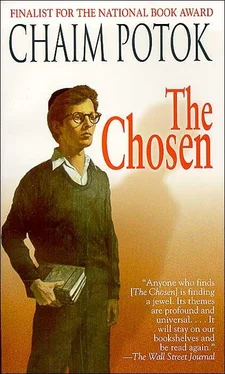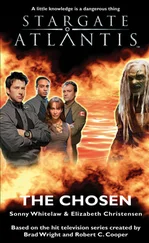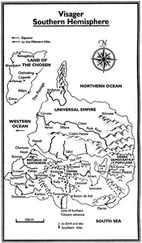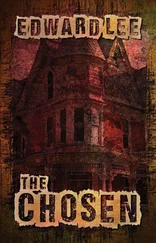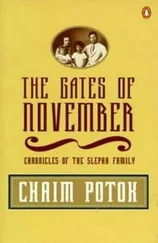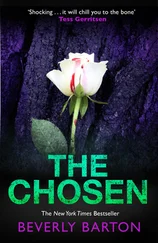'One of these days I want to have a long talk with you about it,' he told me, blinking his eyes.
But we had no real opportunity for any long talk. The Shabbat day grew shorter and shorter, my schoolwork seemed endless, and student politics took up every moment of my spare time.
And then, in the middle of December, just when it seemed that the war would be over very soon, the Germans launched a major offensive in the Ardennes region, and the Battle of the Bulge began. There were reports of frightful American casualties – some newspaper said that two thousand American soldiers were being killed and wounded every day.
It was a cold, bitter winter in New York, bleak with the news of the fighting in the Ardennes, and at night, as I sat working at my desk, I could hear the radio in the kitchen where my father would be sitting with his war maps, following the news.
The Battle of the Bulge ended about the middle of January, with the newspapers reporting seventy-seven thousand Allied casualties and one hundred twenty thousand German casualties.
Throughout the entire month of that battle – from the middle of December to the middle of January – I did not see Danny once. We spoke on the phone a few times; he told me his brother was sick again and might have to spend some time in a hospital. But the next time I called him his brother was all right – the doctor had changed his pills, Danny said, and that seemed to work. He sounded tired and sad, and once or twice I could barely hear his voice over the phone. The Battle of the Bulge? Yes, he said vaguely, a terrible business. When was I coming over to see him? As soon as I could breathe a little, I said. He said not to wait too long, he needed to talk to me. Was it very important? I wanted to know. No, it could wait, it wasn't very important, he said, sounding sad.
So it waited. It waited through my midyear exams and through the first two weeks of February, when I managed to get to Danny's house twice and we fought our customary Talmud battles together with his father but didn't get a chance to be alone long enough for us to talk. And then the news of the war in Europe suddenly reached a peak of feverish excitement. The Russians captured Konigsberg and Breslau and came within thirty miles of Berlin, and at the end of the first week in March American troops reached the Rhine River at Remagen and discovered, to their astonishment, that the Ludendorff Bridge had, for some reason, not been destroyed by the Germans. My father almost wept with joy when we heard the news. There had been talk of bloody battles and high casualties in crossing the Rhine. Instead, American troops poured across the bridge, the Remagen beachhead was quickly enlarged and held against German counterattacks – and everyone began to talk of the war ending in two months.
My father and I were overjoyed, and even Danny, whom I saw again in the middle of March and who generally took little interest in the details of the war, began to sound excited.
'It is the end of Hitler, may his name and memory be erased,' Reb Saunders said to me that Shabbat afternoon. 'Master of the Universe, it has taken so long, but now the end is here.'
And he trembled as he said it and was almost in tears.
Danny caught the flu in the last week of March and was in bed for more than a week. During that time, the Saar and Silesia were taken, the Ruhr was encircled by American troops, and another bridgehead was formed across the Rhine by soldiers of General Patton's army. Almost every day now there were rumors that the war had ended. But each rumor proved to be false and did nothing but add to the already intolerable anxiety and suspense my father and I were feeling as we read the papers and listened to the radio.
Danny returned to school at the end of the first week in April, apparently too soon, for he was back in bed two days later with bronchitis. I called his mother to ask if I could visit him, but she said no, he was too sick, and besides what he had was contagious, even his brother and sister weren't permitted into his room. I asked if I could speak to him, but she told me he was running a high fever and could not leave his bed to come to the phone. She sounded worried. He was coughing a great deal, she told me, and was exhausted from the sulfa he was taking. Yes, she would give him my wishes for his speedy recovery.
On the Thursday afternoon of the second week in April, I was sitting at a meeting of the student council. The meeting had started pleasantly enough with the usual reading of the minutes and committee reports, when Davey Cantor burst into the room. looking as though he was crying, and shouted breathlessly that someone had just told him President Roosevelt was dead.
He was standing by the door of the classroom, and there was a sudden movement of heads as everyone turned and gaped at him in total astonishment. I had been in the middle of a sentence, and I turned, too, remaining on my feet next to my desk, and I heard myself saying angrily that he had a hell of a nerve barging in here like that, he wasn't being one bit funny.
'It's true!' he shouted, crying. 'Mr Weinberg just told me! He heard it on the radio in the faculty room!'
I stared at him and felt myself slide slowly back onto my desk.
Mr Weinberg taught English. He was a short, bald man, with no sense of humor, and his motto was 'Believe nothing of what you hear and only half of what you see.' If Mr Weinberg had told Davey Cantor that President Roosevelt was dead… I found myself in a sudden cold sweat. Someone in the room giggled, someone else moaned, 'Oh, no!' and our faculty advisor stood up and suggested that the meeting be adjourned.
We left the building and came out onto the street. All the way down the three flights of stairs I wouldn't believe it. I couldn't believe it. It was like God dying. Davey Cantor had said something about a cerebral hemorrhage. I didn't believe it. Until I got to the street.
It was a little after five o'clock, and there was still sunlight.
The late afternoon traffic was heavy. Trucks, cars and a trolley choked the street, waiting for the comer light to change. I crossed quickly, ran for the trolley, and made it just as the light changed. I found a seat next to a middle-aged lady who sat staring straight ahead, weeping silently. I looked around. No one in the trolley was talking. It was crowded, and it became more crowded as it went along, but there was only the silence inside. I saw one man put his hands over his eyes and just sit there like that for a while. I stared out the window. People stood around in small groups on the sidewalks. They didn't seem to be talking. They just stood there, together, like an animal herd bunching up for protection. An old gray-haired woman, walking with a child, held a handkerchief to her mouth. I saw the child look up at her and say something, but I couldn't hear it. I found myself crying too, and felt a gnawing emptiness, as though I had been scraped clean inside and there was nothing in me now but a terrible darkness. I was feeling as though it had been my father who had died.
The whole ride home was like that: silence in the trolley car, weeping men and women, groups of people standing about dazedly in the streets, little children looking bewildered and wondering what had happened.
Manya and my father were home. I heard the radio in the kitchen as I opened the door, quickly put my books in my room, and joined them. Manya was cooking supper, and sobbing. My father was sitting at the table, his face ashen, his cheeks hollow, his eyes red, looking as he had when he had visited me in the hospital. I sat at the table and listened to the news announcer. He was talking in a hushed voice and giving details of President Roosevelt's death. Harry S Truman was now President of the United States. I sat there and listened and couldn't believe it. How could President Roosevelt die? I had never even thought of him as being mortal. And to die now, especially now, when the war was almost over, when there was to be a meeting soon of the new United Nations. How could a man like that die?
Читать дальше
